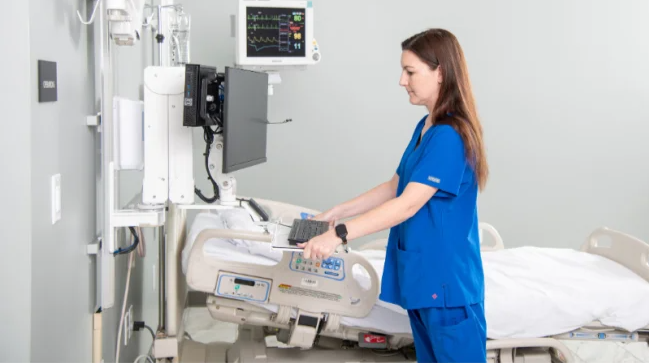Technology’s role in advancing healthcare is undeniable. From fully equipped mobile workstations and automatic medication dispensing to cloud-connected provider/patient communications, hospitals, and long-term care facilities rely on more high-tech tools to deliver exceptional patient care than ever before. To ensure facilities stay on top of the latest advancements while focusing on safe and effective outcomes, Biomedical Engineers are tasked with balancing important development projects with the constant need for maintenance and troubleshooting. This demand for expert oversight of all devices and related technology stands to increase. Standardization is an effective way to keep up while reducing costs, improving operational efficiency, enhancing patient safety, and using data-driven insights. Partnering with one single technology vendor to source new equipment, software, support, upgrades, and related consultative services will go a long way in keeping all staff productive.
Streamlined procurement of all equipment from one supplier simplifies the buying process in several ways. Using one trusted company reduces time spent vetting new vendors and allows hospitals to use economies of scale for greater cost savings and better inventory management. By adopting established standards, engineers can take advantage of existing designs, components, and technologies, reducing the need for custom development. Biomedical Engineers who work with one consistent technology provider spend less time researching interoperability because all products from their chosen provider follow standardized protocols and consistent interfaces designed to seamlessly integrate and share data with each other. All of this provides the flexibility growing organizations need to scale up and expand with less preparation and downtime. Read more >







